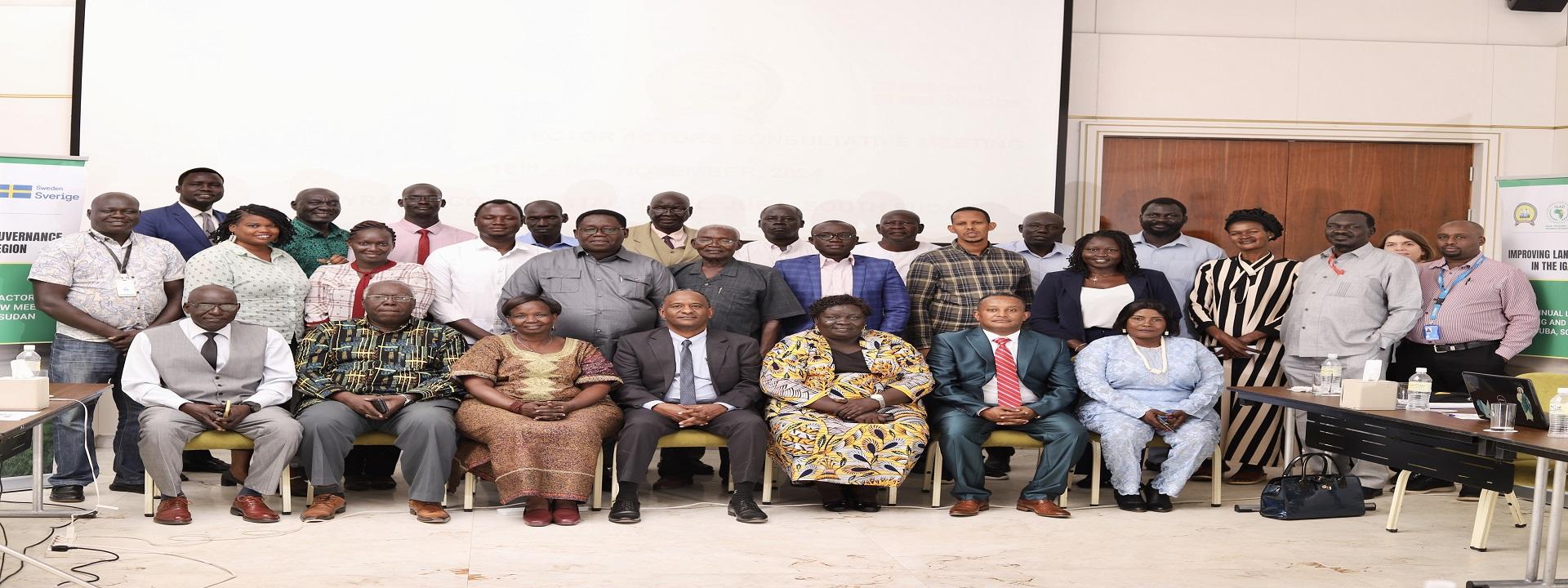November 21, 2024 (Juba, South Sudan): IGAD, has over the past years, developed frameworks to guide Member States improve land administration through modernization and digitization of their land administration systems. One of the activities proposed to support Member States was the establishment of the Land Sector Coordination Mechanism to build synergy and commence planning for streamlining the land governance of the Member States. An equitable and transparent land administration system is a necessary foundation to achieve sustainable development objectives and ensure social equity, economic growth, and environmental protection. Yet, functional land administration systems cannot exist in the absence of adequate land policies defining national land sector goals and objectives. To do this effectively, functional multi-stakeholder processes at country and regional level are necessary. It’s with this background that the Land Governance Unit supported the planning and review meeting of land sector actors in South Sudan to undertake an in-depth analysis of the status of land reforms implementation; institutional structures and align actions necessary for the completion of the draft National Land Policy. The meeting also aimed at identifying opportunities and challenges for the sustainable engagement among the key land sector actors (working relationships), ensuring accountability and building harmony and synergies. The inaugural land sector actors meeting was conducted on 18th – 19th November, 2024.
The meeting greatly contributed to ground the roles and responsibilities of the Land Reform Unit among diverse land sector actors. The establishment of the Land Reform Unit within the Ministry of Lands, Housing and Urban Development is believed a big step to the national land policy development and implementation processes in South Sudan. The mandate of the Land Reform Unit (LRU) is mainly the coordination and facilitation of policy processes, legal and regulatory framework development, land dispute resolution (with emphasis on alternative dispute resolution), provision of public information on land rights, geomatics and land information, promotion of good governance in delivery of land services, and planning for implementation of land sector reforms. However, there are several challenges hindering the functionality of the Land Reform Unit in South Sudan. Among these include lack of resources for regular mobilization of land sector actors and lack of office equipment and ICT infrastructures. As the LRU is a newly established office, proper operational budget allocation including staff salaries is yet to be finalized. During the occasion, the Land Governance Unit handed over laptops, multi-function printer and other office running materials. This will support the facilitation of the day-to-day operations of the Land Reform Unit. During the handing over ceremony, Ms Savia Aya, the Land Reform Unit Coordinator, appreciated the support from IGAD in the establishment and operationalization of the Unit and also the active role IGAD played in the review of the National land Policy. IGAD will continue engaging in South Sudan land sector through supporting the development of the Land Sector Strategic Investment Plan, approval of the draft National Land Policy, enhancing women land rights and capacity building of the national land commission.

